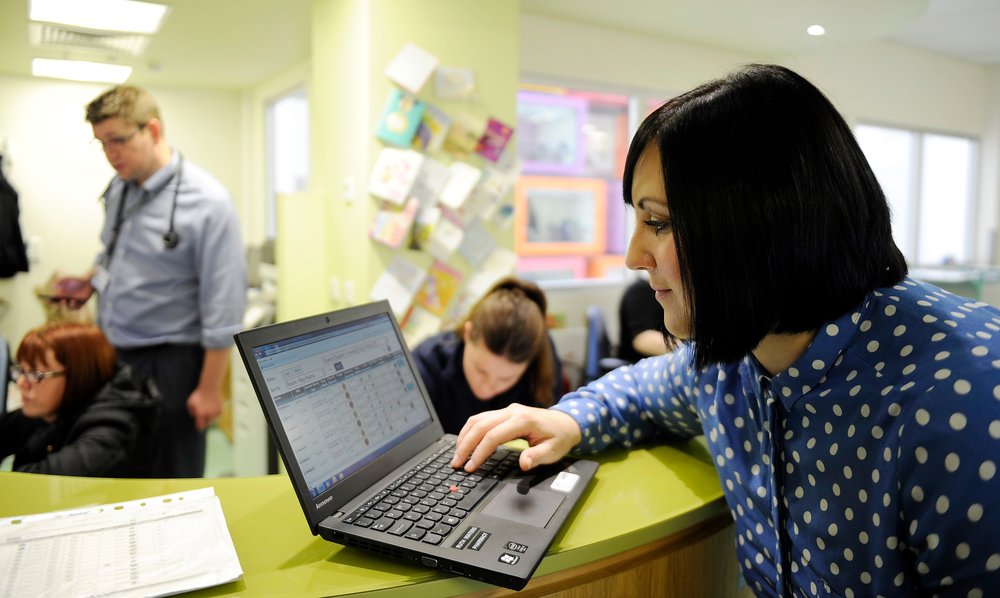RNIB transforms NHS National Services Scotland
RNIB transforms the NHS NSS website to an accessible, service‑led platform.

Summary
Who: NHS National Services Scotland
What: Website overhauled to create an accessible service-led platform
How: Carried out an audit and drafted an accessibility statement
Result: Information now consolidated into two websites with just one CMS
The NHS National Services Scotland website has been overhauled with RNIB’s expertise, to create an accessible service – led platform, that users can easily engage with and find the information they need.
As part of the NHS, National Services Scotland (NSS) provides back-end and repeatable services across the NHS in Scotland. The service-based website varies from national IT infrastructure and services, through to specialist areas – such as WCAG services, and support for national screening services and blood donation services.
RNIB recently carried out an audit in partnership with the NSS development team and drafted an accessibility statement, ensuring a consistent creation of new resources. The process involved an initial assessment, discussion and expertise to identify the best way to solve the problems – and then reaccreditation after the fixes were implemented.
Robin Spinks from RNIB:
“RNIB is delighted to have worked with NSS to improve the accessibility of its digital estate. Parity of access to digital services is critical to ensure the inclusion of all citizens. All digital services need to be perceivable, operable, understandable and robust.”
Working with an inaccessible website
The NSS website had originally been aligned to its organisational structure, making it inaccessible to external users. With the introduction of blended services that cross parts of the organisation, this was a problem.
The user journey was very difficult, as the majority of services on the site were backend, not offering an external service. There were 20 department websites all with their own publications functionality, each with a separate content management system.

Understanding accessibility through an open dialogue with RNIB
Graham explains that having an open dialogue with RNIB was crucial to getting things right. The development team spent a couple of weeks in conversation with RNIB to look at some of the issues, a process that saved time and effort.
“I would say that my developers have gained a greater knowledge of accessibility through doing this project.”
Creating a better user journey and service-based approach
NSS was keen to create a better user journey, factoring in accessibility, a service-based approach. They received a constructive and helpful assessment report from RNIB. The information has now been consolidated into two websites – with just one CMS. They have adopted a three-level approach – ensuring that the topics and subtopics don’t go beyond three levels.
Working on core functionality and creating accessible publications
Graham explains the biggest challenge: “NSS is taking accessibility very seriously.”
NSS asked for a sample audit of PDFs from RNIB. The separate report helped them to influence the executive management team and take it up through the organisation. The teams are now pushing out an HTML first approach to publications.
Keeping content current and relevant with regular evaluations
NSS is keen to monitor content going forwards, making sure that it is current and accessible. Content is evaluated on a quarterly basis and there are KPIs.
Saving costs through creating a reusable tool and design manual
NSS were keen to create a reusable tool, with built in learning from RNIB – so that components don’t need to be created from scratch each time. This meant implementing a design manual, with each of the microservices. There is now a library of components, to make sure that everything is accessible.
“I think it was a really good experience for our developers and the RNIB assessment team, because it was an open channel between the initial assessment and the second assessment, and our guys enjoyed it because they had access to the experts.
Get in touch
If you’ve got a project that would benefit from our expertise in accessibility get in touch with us directly on 01733 375 370 or contact our Business Services Team below.







